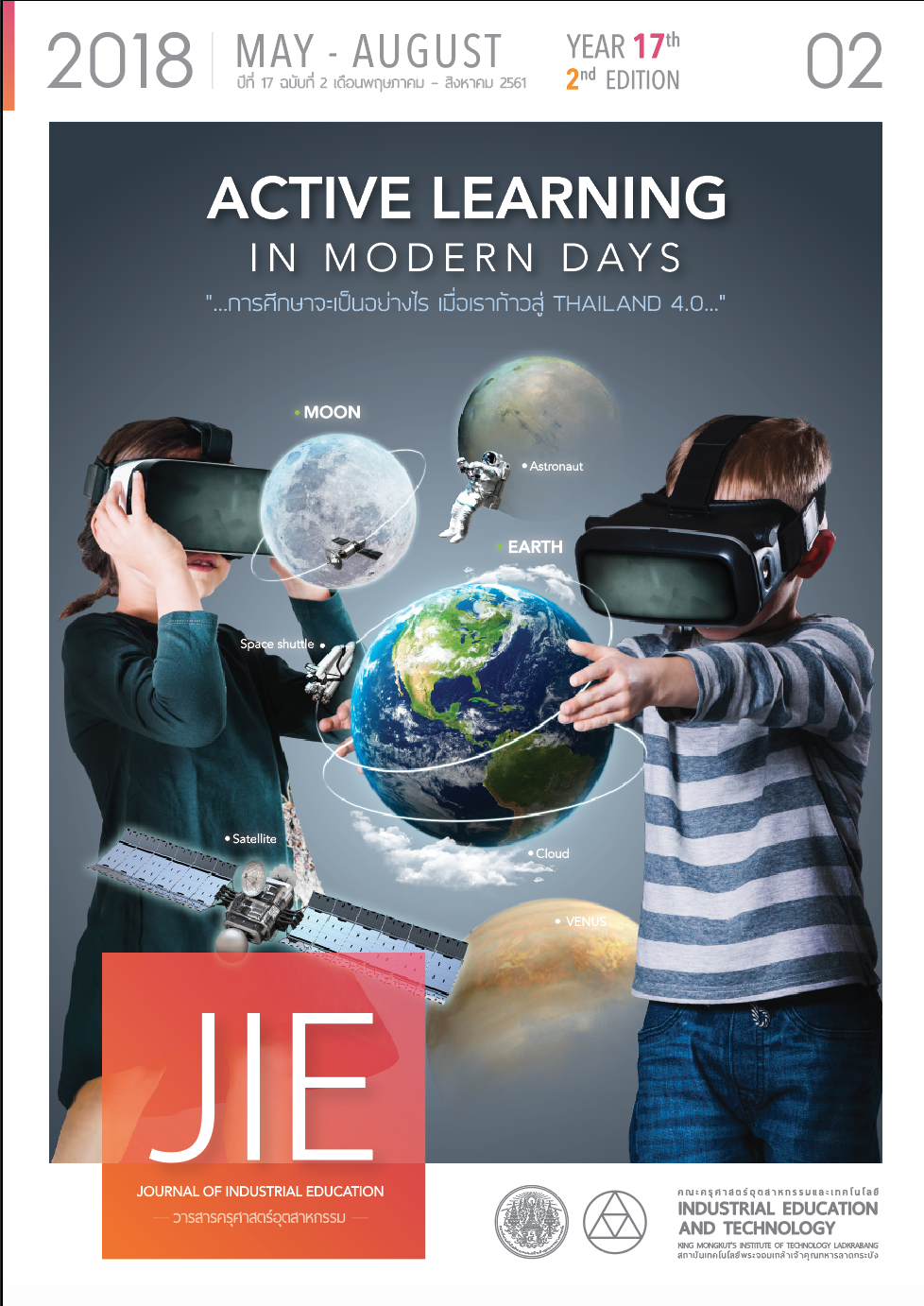EFFECTS OF TEACHER’S ICT SKILLS COMPETENCY DEVELOPMENT IN 21st CENTURY IN CENTRAL REGION BY USING MODEL OF PROJECT-BASED BLENDED E-LEARNING COURSEWARE
Keywords:
ICT Skill, Century 21, e-Learning Courseware, Blended Learning, Project-Based LearningAbstract
The objectives of this research were: 1) to study teacher’s ICT skills competency development in 21st century in central region by using model of project-based blended e-learning courseware 2) to compare learning achievement results of before and after developing ICT skills competency, and 3) to study the opinion of teachers toward using model of project-based blended e-learning courseware. The samples were junior high school teacher in central region from 25 teachers in upper central region and 20 teachers in lower central by stratified random sampling. The instruments of this research were 1) project-based blended e-learning courseware 2) ICT skills competency test, and 3) opinion toward using blended e-learning courseware questionnaires. Data were analyzed by percentage, mean, standard deviation and t-test dependent.
The results of the research found that 1) teacher’s ICT skills competency in central region had 78.58% 2) the learning achievement after using blended e-learning courseware higher than before learning at .05 level of significant, and 3) the opinion of teachers toward project-based blended e-learning courseware, the overall was appropriate in the high level.
References
[2] Office of the Basic Education Commission. 2014. The Global Competitiveness Report 2014-2015: World Economic Forum. Bangkok: Ministry of Education.
[3] Ministry of Education. 2012. Roles of e-Learning with Present Education. [Online]. Retrieved Mar, 12, 2017 from https://www.moe.go.th/moe/th/news/detail.php?NewsID=14173&Key=news15.
[4] Jintavee Khlaisang. 2012. e-Learning Courseware: Concept to Practice. Bangkok: Chulalongkorn University.
[5] Sutiporn Jitmittraphap. 2011. Teacher’ in 21st Century. Bangkok: Ministry of Education.
[6] Vicharn Panich. 2012. Learning Creativity for Learner in 21st Century. Bangkok: Tathata Publication Co.Ltd.
[7] Narong Sompong and et al. 2016. Development of Blended e-Learning Courseware by Problem-Based Learning for Teacher’s ICT Skill Development in 21st Century: Learning Creativity for Learner. Bangkok: Faculty of Education, Kasetsart University.
[8] Supanee Sengsri. 2007. Roles of Teacher’ in Digital Era. Phitsanulok: Naresuan University.
[9] Vicharn Panich. 2012. Skills in The New Future: Education for 21st Century. Bangkok: Tathata Publication Co.Ltd.
[10] Nutteerat Pheeraphan and et al. 2016. Information Communications and Technology Competency Framework of Teacher’s in 21st century. Bangkok: Srinakharinwirot University.
[11] Narong Sompong and et al. 2018. The development Using Model of Project-based Blended e-Learning Courseware for ICT Skills Development of Teacher in 21st Century in Central Region. Bangkok: Department of Educational Technology, Kasetsart University.
[12] Thanompon Laohajaratsang. 2017. Necessary Skills of Teacher in The Future. [Online]. Retrived Dec, 5, 2017. From htto://learning.ed.eduzones.com/lovekru/180669.
[13] Panuwat Sukthanaruk and et al. 2017. Information Technology Skills of Teachers under The Chonburi Primary Educational Service Area Office1. Journal of Industrial Education,
16(1), p. 140-148.
[14] Titiya Natewong and Boonyaluck Tamnanjit. 2014. The Effect of Blended Collaborative Learning and Project-Based Approaches on Knowledge Construction and Learning Achievement. SDU, 8(3), p. 1-11.
[15] Panuwat Srichailard and Krich Sinthanakul. 2017. The Development of A Blended E-Learnning Programs And Completency Based Plan For an Internet Administration and Service Course
for Computer Education Students’. Journal of Industrial Education, 16(3), p. 66-74.
[16] Nutteerat Pheeraphan and et al. 2016. Information Communications and Technology Competency Framework of Teacher’s in 21st Century. Bangkok: Srinakharinwirot University.
[17] Supaporn Janjam and Anirut Satiman. 2014. Effects of E-Learning Using Project-Based Learning In Learning Achievement and Collaborative Behavior of Undergraduate Students, Faculty Of Education, Silpakorn University. Thesis Online, Silpakorn University.
[18] Danipuk Chaosrikul and et al. 2015. Development of Ability in The Use of Information and Communication Technology for Junior High School Students in The 21st Century.
Information Journal, 22(1), p. 49-58.
Downloads
Published
How to Cite
Issue
Section
License
"The opinions and contents including the words in papers are responsibility by the authors."
"ข้อคิดเห็น เนื้อหา รวมทั้งการใช้ภาษาในบทความถือเป็นความรับผิดชอบของผู้เขียน"



